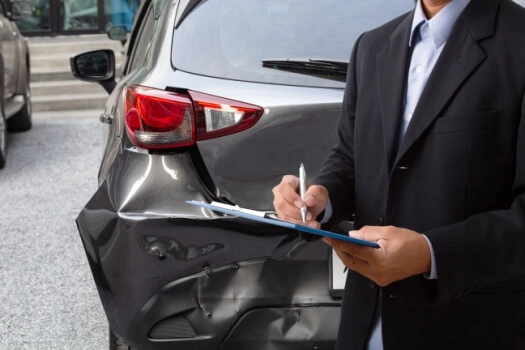
You finally got that new car you’ve been saving up for. You got it licensed and bought a full coverage auto insurance policy, complete with collision and comprehensive coverage. You’re ready to safely and confidently hit the road.
But are you? Are you fully insured against every bad chunk of luck that you and your brand-spankin’ new car might endure? You’ve got roadside assistance? Protection against uninsured drivers?
You still might not be quite out of the woods. That’s why you should read on and find out about car gap insurance and how it can more fully protect your pocketbook.
What Is Gap Insurance and Why Do You Need it?
Gap, which stands for guaranteed asset protection, is a very affordable insurance plan that will protect your finances if your new or late model car is lost or totaled while you still owe more for it than the insurer says it’s worth.
There are times when your insurer feels it’s cheaper for them to simply pay off your vehicle instead of going through the high cost of trying to fix it, regardless of whether you got into an accident with an uninsured driver in Georgia or otherwise. Or perhaps you don’t even have a car to try to repair. It might have been stolen and never recovered or severely damaged by fire or even swept away in floodwaters.
Whatever the situation, your finance company ends up with a check from the insurer for what’s called the vehicle’s actual cash value or ACV.
Here’s the rub. Because of depreciation (more on that later), that check sent to your lender still doesn’t cover what you owe on the original loan. You end up on foot, with thousands of dollars still to be paid for that non-existent car — unless you have car gap insurance.
Understanding How Car Gap Insurance Works When Your Car Is Totaled
You might have heard the old joke about your car losing thousands of dollars as it leaves the car lot. It’s actually more a sad reality than a joke. On average, a new car loses around 20 percent of its value in the first year. That value in reverse is called depreciation.
For example, you pay $30,000 for a new car. Due to depreciation, its value almost immediately drops to around $24,000. You’ve lost $6,000 in what the car is considered to be worth on the open market.
Now imagine you’re involved in an accident that damages your new car beyond repair. Your auto insurer feels it’s financially smarter to junk the car and give your lender the cash value of what it was worth at the time of the accident.
Your insurer consults Kelley Blue Book or a similar resource to see that the ACV for your vehicle is $24,000. However, you still owe the bank or finance company around $27,000.
Your insurer will send your lender the $24,000, and your lender will tell you to keep paying off the additional $3,000 you still owe.
However, if you have added car gap insurance to your auto coverage policy, your insurer will pay that final chunk of cash so you won’t have to keep paying for a car you no longer own.
Car gap coverage is usually only an issue for the first three years of a new car loan. If you’ve been steadily paying off the vehicle to your finance company, the value of your car will eventually catch up with what you owe and you can discontinue your gap coverage.

Georgia-Specific Regulations and Requirements for Car Gap Insurance
If you’ve ever had car gap insurance in another state, you’ll be glad to know that the coverage works pretty much the same way in Georgia. If your insurer doesn’t offer gap coverage, it may be time to think about switching to a new insurance company.
The only situation where you can’t purchase a gap policy when buying a new car in Georgia is if the purchase price of your new car includes the negative equity of a car you’re trading in as part of the transaction. Negative equity occurs when you’re trading in a vehicle that is worth as much money as you still owe on it.
Used Cars and Gap Insurance: Can You Get Coverage on a Pre-Owned Vehicle?
Sometimes you can purchase gap insurance on a used car — but that only applies in a few situations.
Generally, depreciation happens to new cars. If your car is used, in most cases it’s already lost its new-car sticker-price value. One exception might be if you’re buying a car that’s only one model year old. In that case, it might still have value to lose.
If you are buying a late model pre-owned vehicle, ask your auto insurance agent to crunch the numbers and help you decide if adding gap coverage to your auto policy is right for your wallet.
Frequently Asked Questions
Here are answers to some of the most basic questions on car gap insurance.
What is Gap Insurance for Cars?
It’s additional coverage you can add to your auto policy when you buy a new car. New cars quickly lose their new-car value. This is called depreciation, and it means that your car might lose thousands of dollars in value as it comes off the car lot.
If you total your new car, gap insurance will ensure you don’t owe money on it. Your insurer will pay the difference between the value of the car and the amount you still owe on your loan.
How Does Gap Insurance Work if Your Car is Totaled?
If your car is lost or totaled for any reason, including most types of damage covered under your policy, theft, fire, or flood damage, your insurer will pay for the vehicle’s actual cost value (ACV) instead of trying to repair it.
If the ACV is less than what you still owe on the loan, your insurer will pay the difference. That way, you won’t owe anything on a car you no longer have.
How Much Does Gap Insurance Cost?
The cost will vary depending on the make and model of your vehicle and how much you paid for it. In Georgia, the cost can be as little as a few dollars a month.
It is almost always cheaper to buy this coverage through your auto insurance agent than from the car dealership. Ask your agent to run the numbers.
How is Your Car’s Actual Cash Value (ACV) Determined?
If your car is totaled or permanently lost for any reason, your insurance agent will consult sources such as Kelley’s Blue Book to determine what the average car of your make, model, and year should be worth. That’s known as the actual cash value, and it’s what your insurer will pay — regardless of how much you still owe on the car.